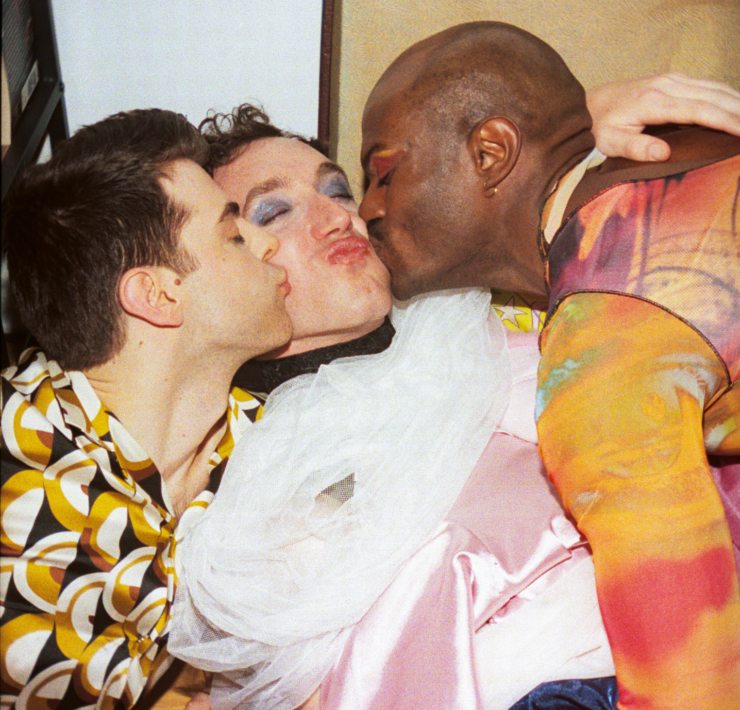Maurice Returns: Digitally Remastered 30th Anniversary Re-release of a Gay Cinema Classic

30 years after its debut, Maurice has undergone 4k digital remastering. The splendid results open in Denver on June 30.
30 years ago, a fresh-faced, floppy-haired British newcomer ignited anglophilic passions in a film so lavishly produced and forcefully acted that one critic wrote: “It’s a woozy, unadulterated romance, an intoxicating tuxedo-ripper set against the elegant priggishness of England’s post-Edwardian gentry.” Rita Kennedy of the The Washington Post stole the words right out of my mouth… kinda.
The film was Maurice (British pronunciation “Morris”), the actor was Hugh Grant, the producer/director team was Ismail Merchant and James Ivory, and the source novel was by EM Forster. 30 years after its debut, Maurice has undergone 4k digital remastering. The splendid results open in Denver on June 30.
Thirty Years Ago
In 1987, Merchant-Ivory Productions — Ismail and James, business partners and husbands — followed up the biggest hit of their careers, A Room With A View (1985), with Maurice. Merchant-Ivory delivered a gay romance with all their signature attention to period detail to audiences craving more in the wake of A Room With A View.
A Room With A View introduced a smashing newcomer, 21-year-old Helena Bonham-Carter. In similar fashion, Maurice elevated 26-year-old stunner Hugh Grant from secondary roles on British TV and introduced him to U.S. audiences. Both films were critical successes. The difference came with distribution and awards: A Room With A View was nominated for eight Academy Awards and captured three.
Maurice received one Oscar nomination.
Because of central gay themes and characters, many distributors balked. As a result, Maurice showed on a handful of screens and was not well publicized.
Defying Two Eras
Despite societal hurdles, critics praised Maurice for its luscious interiors and costumes, solid performances, and the captivating trio of British actors at its core.
Roger Ebert wrote: “Merchant and Ivory tell this story in a film so handsome to look at and so intelligently acted that it is worth seeing just to regard the production. Scene after scene is perfectly created… The supporting cast is unusually strong.”
The stiff manners of pre-World War I, when homosexuality was taboo and illegal, served to make the gay coupling and male nudity somewhat of a shocker — both for 1912 and 1987. (In the 1980s there was no internet to serve up spoilers.)
Three Hot Brits
About that lovely trio of young British males. Hugh Grant and James Wilby portray Clive and Maurice, posh undergrads at Cambridge University. Clive, in a moment of huge risk, declares his love for Maurice. Physical love stops at Clive’s fears. His primary concern is protecting name and reputation. Clive’s worst fears are realized when a former college classmate is arrested for “gross indecency,” convicted, and utterly ruined.
Rupert Graves portrays Alec Scudder, third in the trio. As the under-gamekeeper at Clive’s family estate, Alec is free from Clive’s concerns. There is little to stop him from pursuing his passions. Once he sets his sites on Maurice, the obstacles are few. Maurice, frustrated by Clive’s caution, does not protest.
In an interview for the hit British TV import Sherlock, Rupert Graves, who plays Detective-Inspector Lestrade, reminisces about his role as Alec Scudder and previous role as Freddy Honeychurch in A Room With A View. He had nude scenes in both films and later learned that he landed the roles partly because most other candidates flatly refused to strip.

Page To Screen
To give historical context, the fictional Crawleys of Downton Abbey received news that the male heirs to their estate perished aboard the Titanic. That TV saga kicks off in 1912.
The same year, author EM Forster wrote Maurice. Maurice was contemporary. The lives, laws, college atmosphere, city and country settings were “now” for the author.
Many writers put forth that the book was Forster’s ode to his own homosexuality, although the characters of Maurice and Alec were probably based on a friend of the upper-middle class and his lover, a laborer.
Completed in 1913, Forster did not seek to publish Maurice during his lifetime. He wrote on a manuscript: “Publishable, but worth it?” Book-stockists probably would not allow it in their shops and his writing career might be destroyed.
Homosexuality was not decriminalized in England until 1968. The book was finally published in 1971, one year after the author’s death. Forster published five novels in his lifetime, every one has been adapted to screen: Where Angels Fear To Tread, A Room With A View, Howard’s End, A Passage To India.
The Merchant-Ivory film adaptation of Maurice was written and directed by James Ivory. The team worked with screenwriter Ruth Prawer Jhabvala on a bulk of their projects, but not this one.
Merchant-Ivory was founded in 1961. Ismail Merchant died in 2005 and Jhabvala in 2013. James Ivory, at 88-years-old wrote the screenplay for Call Me By Your Name, adapted from the novel by André Aciman, due to be released this year.
The digitally-remastered 30th Anniversary re-release of Maurice opens June 30th and plays for one week. Visit LandmarkTheatres.com/Denver for information and showtimes.










